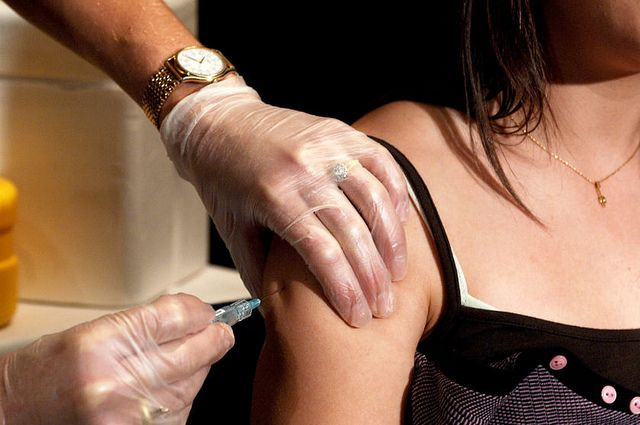Parents Beware: Even Your Non-Sexually Active Teens Can Contract HPV

New research demonstrates even among teenage girls who have not participated in sexual intercourse there is a chance of contracting human papillomavirus (HPV).
The study, which was conducted in Cincinnati assessed information from 259 adolescent girls ranging from 13 to 21 years of age. The participants were asked if they were sexually active or if they ever had sexual contact without having intercourse. Either physicians or the participants themselves used a swab in order to collect cell samples from the vagina and cervix.
Of the teenage girls who were sexually experienced and had more than six partners, 73 percent tested positive for HPV. Those who were sexually active, 70 percent tested positive for HPV. Out of the 69 teenage girls who had not participated in sexually intercourse, eight tested positive for HPV. Two had HPV-16, which is the high risk strain of the virus, known to cause most cervical cancers.
Speaking to MyHealthNewsDaily, Eduardo Franco, a cancer epidemiologist at McGill University in Montreal, said the percentage of adolescent girls who have never had sex that tested positive for HPV was higher than anticipated.
Although, Franco is uncertain whether HPV was found in the cervix or the vagina, it is positive that those who have HPV in the cervix have a higher risk of being diagnosed with cervical cancer. However, it is likely for those to contract HPV in the cervix without engaging in sexual intercourse.
Researcher Lea Widdice, an assistant professor of pediatrics at Cincinnati Children's Hospital, believes the study results support the recommendation that parents take their adolescent girls to get vaccinated. She believes even before teens engage in sex they are susceptible to HPV.
Though the study only covered one community of primarily African-American women, researchers stress the importance of not delaying vaccination in adolescents between the ages of 11 and 12.
Currently, vaccines that are available prevent both cervical and vaginal HPV. Franco also states, one should receive vaccination prior to contracting HPV, however if one does get infected the vaccines will protect against the cervical type of HPV.
The study was published in the Archives of Pediatrics & Adolescent Medicine.
Published by Medicaldaily.com



























